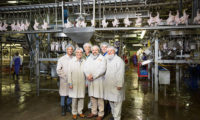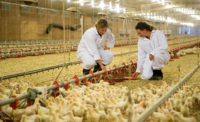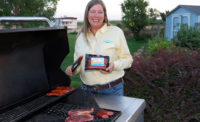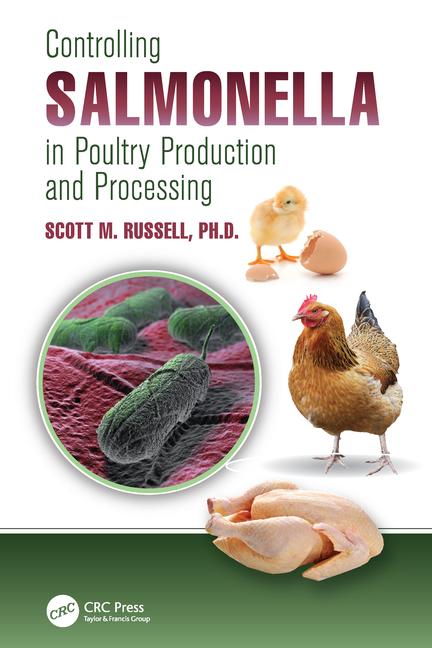Organic agriculture — considered by some to be a niche and/or fad some 30 years ago — continues to grow in the United States, and the sheer number of organic products found in retail and foodservice outlets offers anecdotal evidence.


If you don’t believe the anecdotal data, then you can turn to information collected by the U.S. Department of Agriculture National Agriculture Statistics Service (USDA-NASS) to support the statement. The 2019 Organic Survey, which is “a follow-on survey to the 2017 Census of Agriculture,” polled all known U.S. farms and ranches with certified organic production in 2019, as well as those who indicated on the census that they were transitioning into organic production. Prior to 2019, the organic survey was conducted in 2016. The 2019 Organic Survey data was published in October 2020.
Sponsored By:

Organic Commodity Sales
| Sector Total ($ million) | Sales ($ million) | % Change, 2016-2019 | |
| Livestock and poultry | 1,663 | 44 | |
| Broiler chickens | 1,115 | 49 | |
| Field crops | 1,180 | 55 | |
| Corn, for grain | 278 | 70 | |
| Soybeans | 109 | 39 |
Source: USDA-NASS, 2019 Organic Survey (2017 Census of Agriculture)

In 2019, sales of organic livestock and poultry totaled nearly $1.7 billion, up 44 percent from 2016. Sales of broiler chickens drove the sector, with $1.12 billion in sales — a nearly 50 percent increase from 2016. On the organic grain side of the equation, organic soybeans grew 39 percent to $109 million in sales, and grain corn skyrocketed 70 percent to $278 million in the three-year period.
Bell & Evans, a Fredericksburg, Pa.-based chicken processing company, has done its part to propel the growth of organic chicken over the years and make it known that it plans to push the category even further. In fact, in February 2021, the company reaffirmed in a big way its commitment to organic, U.S.-grown grain for feeding its chickens by announcing the development of an Organic Grain Initiative.
Over the course of the next five years, Bell & Evans, along with its partners Cargill and Rodale Institute, has committed to converting 50,000 acres of conventional farmland to organic production. It’s a $500 million investment in the future of organic agriculture — and a unique approach — that incentivizes farmers to make the switch. Scott Sechler Sr., owner of Bell & Evans, explains the basis and expectations for the initiative.
Margo Sechler, executive vice president of Bell & Evans, says that the commitment helps the farming community overall, particularly the farm families the processor has always made its business to support.
Rodale Institute has a long history of assisting farm families as well, specifically consulting them on transitioning their farms to organic production. Sam Malriat, director of Rodale Institute’s Organic Crop Consultancy, details Rodale’s experience and explains how it fits into this partnership.
Cargill may have a larger footprint and reach as a company, but its place in this partnership will ensure that Bell & Evans growers have access to the organic feed it will need to grow. Jeff Vassart, managing director for Cargill’s agricultural supply chain in North America, explains the ways in which Cargill can help this partnership succeed and also help farmers get the help they need to make the transition.
Bell & Evans reports it already has received excellent feedback on the initiative and expects that the goals will grow as time goes on. In 2020, Bell & Evans experienced 25% growth in organic chicken sales and projects growth of 27% in 2021 and 17-20% each year after that, through 2024, so partners in the Organic Grain Initiative certainly will have a market for their organic feed.
Meanwhile, Bell & Evans will continue to look for additional ways to improve chicken production and processing, as it relishes its position as a top-line innovator. There is little time for the processing to rest, particularly with its brand new processing plant expected online in November 2021.
There, again, Bell & Evans fully expects to break the standard, rather than simply raise it, for the rest of the industry.










